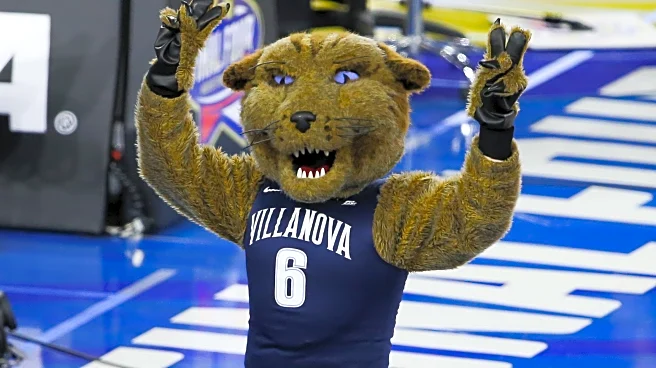What's Happening?
The Booker Prize Foundation has announced the launch of a new literary award dedicated to children's fiction, known as the Children's Booker Prize. This initiative aims to celebrate contemporary fiction for
children aged eight to twelve. The award will feature a unique judging panel that includes both adults and children, with UK Children's Laureate Frank Cottrell-Boyce serving as the inaugural chair of judges for 2027. The prize is set to be awarded annually starting in 2027, with the first submissions being accepted in spring 2026. The foundation plans to distribute at least 30,000 copies of the shortlisted and winning books to children, aiming to inspire more young people to engage with reading.
Why It's Important?
The introduction of the Children's Booker Prize comes at a time when children's reading for pleasure is reportedly at its lowest in 20 years, according to the National Literary Trust. By creating a high-profile award for children's literature, the Booker Prize Foundation seeks to address this decline and foster a renewed interest in reading among young audiences. The initiative is expected to not only highlight quality children's literature but also to encourage family reading and engagement with books. This could have a significant impact on literacy rates and educational outcomes, as well as support the publishing industry by increasing demand for children's books.
What's Next?
The Children's Booker Prize will begin accepting submissions from publishers in spring 2026, with the shortlist and child judges being announced in November of the same year. The winner will be revealed at an event for young readers in February 2027. As the award gains traction, it is likely to attract attention from authors, publishers, and educators, potentially influencing the types of children's books that are published and promoted. The involvement of child judges may also provide unique insights into what young readers find engaging, shaping future trends in children's literature.
Beyond the Headlines
The Children's Booker Prize could have broader cultural implications by elevating the status of children's literature and recognizing it as a vital part of the literary landscape. The award may also encourage diversity in children's books, both in terms of the stories told and the authors who write them. By including children in the judging process, the prize emphasizes the importance of young voices in literary discussions, potentially leading to more inclusive and representative storytelling.










